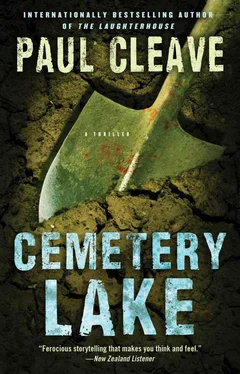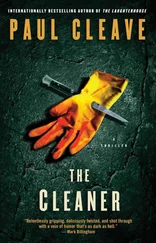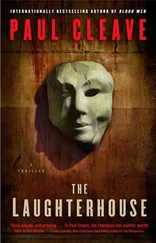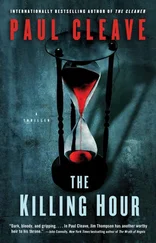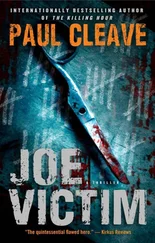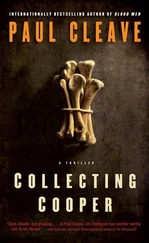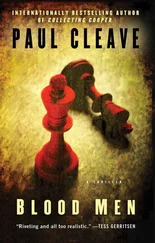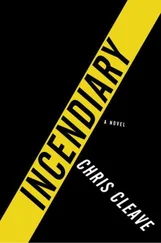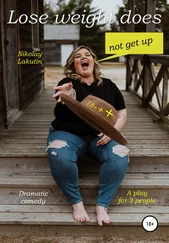Paul Cleave - Cemetery Lake
Здесь есть возможность читать онлайн «Paul Cleave - Cemetery Lake» весь текст электронной книги совершенно бесплатно (целиком полную версию без сокращений). В некоторых случаях можно слушать аудио, скачать через торрент в формате fb2 и присутствует краткое содержание. Год выпуска: 2008, ISBN: 2008, Издательство: Atria Books, Жанр: Триллер, на английском языке. Описание произведения, (предисловие) а так же отзывы посетителей доступны на портале библиотеки ЛибКат.
- Название:Cemetery Lake
- Автор:
- Издательство:Atria Books
- Жанр:
- Год:2008
- ISBN:9781451677836
- Рейтинг книги:3 / 5. Голосов: 1
-
Избранное:Добавить в избранное
- Отзывы:
-
Ваша оценка:
- 60
- 1
- 2
- 3
- 4
- 5
Cemetery Lake: краткое содержание, описание и аннотация
Предлагаем к чтению аннотацию, описание, краткое содержание или предисловие (зависит от того, что написал сам автор книги «Cemetery Lake»). Если вы не нашли необходимую информацию о книге — напишите в комментариях, мы постараемся отыскать её.
Cemetery Lake — читать онлайн бесплатно полную книгу (весь текст) целиком
Ниже представлен текст книги, разбитый по страницам. Система сохранения места последней прочитанной страницы, позволяет с удобством читать онлайн бесплатно книгу «Cemetery Lake», без необходимости каждый раз заново искать на чём Вы остановились. Поставьте закладку, и сможете в любой момент перейти на страницу, на которой закончили чтение.
Интервал:
Закладка:
“We?”
“You know what I mean.”
“We’ll start with the woman. She should be simple. Then work backward.”
I glance past the examiner toward the tent that shelters the dead and the wet. The wind chill seems to have dropped by around five degrees, and picked up an extra twenty-five kilometers an hour. The sides of the tent are billowing out. The blanket around me no longer feels warm.
“So how do. .?”
He raises his hand to stop me. “Look, Tate, your colleagues know what they’re doing, and I’ve already told you more than I should have. Leave it to them.”
He’s right and wrong. Sure, they know what they’re doing, but they’re no longer my colleagues. I think about the watch in my pocket, hoping it will have one of those To Doug, love Beryl inscriptions on it. Then it’s just a matter of finding a gravestone belonging to a Doug who was married to a Beryl. With luck, that gravestone is here. With luck, these people were given proper burials by proper priests under the proper conditions, and not autopsied and dressed up by some homicidal maniac in his basement.
A four-wheel drive pulls up next to the tent. Two guys climb out and walk around to the back of it. They each pull out a scuba tank, then reach further in for more gear.
“Look, Tate, I’ve told you what I can. It doesn’t involve you, but if you think it does, then take it up with one of your old buddies. I have to get back to work.”
I watch Sheldon as he moves back to the tent. The helicopter is still buzzing back and forth, the rotor blades sound like the beginnings of a deepening headache. I can imagine what the journalists are saying, what they’re coming up with, and there is no doubt they’re thriving on it. Bad things happening to good people always makes the greatest news.
CHAPTER FOUR
I hate cemeteries. I don’t have a fear of them-it’s not a phobia like someone who is too scared to fly, but must fly anyhow. I just don’t like them. I can’t really say they represent all that is wrong with this world, because that wouldn’t be a fair comment. Not logically. But I feel that way. I think it’s because they represent what happens to all the people in the world who have been wronged, and even then they only speak for the ones who are found. There are others out there in shallow graves, in creeks and crevasses and oceans, or held down by chains, who cannot be spoken for with gravestones, only by the memories their loved ones have of them. Of course, that isn’t a fair statement either. That would be like assuming all of the graves out here belong to victims of crime, and of course only a few do. Most belong to people too old to live, too young to have died, or simply too unlucky to keep living.
The rain is getting stronger and the sky is getting darker. My cell phone rings every minute or so as I drive away and I’m lucky the thing still works after going in the drink. Salt water would have been a different story. As soon as I get past the gates I hit the blockade, where police cars are parked on angles across the road to prevent other people coming to mourn the dead, or to prevent the dead from escaping and mingling with the mourning. I weave my way through them into the media blockade. It’s the circle of life out here. Vans and four-wheel drives with news-channel logos stenciled across the side and satellite dishes mounted on top are parked at haphazard angles, the rain no deterrent for the camera crews and reporters trying to look pretty in the drizzle. I manage to get past, pretending I can’t hear the same questions yelled at me from every interviewer.
After them comes the first wave of get-home traffic that creates a blockade in the city at this time of the day. My wet jacket and shirt are in the back seat along with the borrowed windbreaker. I have the blanket draped over my seat so my clothes don’t soak into the upholstery. With the heater blasting on full, moisture forms on the windshield that the air conditioner can’t keep up with. Every half minute I have to wipe away the condensation with my palm. I turn on the radio. There’s a Talking Heads song on. It suggests I know where I’m going, but that I don’t know where I’ve been. I turn the radio off. Talking Heads has got it wrong in my case.
The first call I answer is from Detective Inspector Landry, asking me to head into the station to provide a formal statement. He probably figures he can do the world a favor by keeping me squirreled away for a few hours running over all the exact reasons that added up to my being in a cemetery with dead bodies that can’t be accounted for. When I ask him if they’ve tracked down the caretaker, he tells me they’ll inform me when they do, and we both know it’s bullshit.
The next two calls are from reporters. I knew some of them would recognize me as I was driving away. Reporters are quick like that. I go further back than yesterday’s news, and these guys have long memories. I hang up on their questions before they can finish asking them.
Then my mother calls me, telling me she saw me on TV sitting in the back of an ambulance and wanting to know what has happened to me. Clearly the police didn’t have the cemetery as well cordoned off as they thought. I tell my mother that I fell into the lake, that was all, and that I still have all my limbs. She tells me to be careful, that I shouldn’t go swimming with so many clothes, and that she and Dad are worried. Bridget, my wife, she points out, would be worried as well.
When I manage to hang up, the phone rings again and another reporter asks me whether I’m back on the city’s payroll. I decide to switch my phone off, which is a pretty good decision considering the alternative of rolling down my window and throwing it into the elements.
I put both hands on the wheel and start thinking about the three bodies, wondering if there are more. I start spinning the possibilities around in my mind, but it isn’t long before I have to concentrate less on the corpses and more on trying not to become one as the traffic becomes thick with SUVs blocking intersections.
My office is in town, situated in a complex with a hundred other offices, most of them belonging to law and insurance firms, from whom I get most of my business. Following cheating husbands for divorce settlements and photographing people scamming their insurance providers allows me to pay the rent, and occasionally I even get to eat. Now I’m digging up coffins and swimming with corpses and the pay is the same. I park in my space behind the building and, still shoeless and saturated, run inside to the elevators and ride eight stories closer to Heaven.
Because most of my clients are in the same building, and any other business I attract comes through phone calls and word of mouth, I come and go as I please, allowing my answering machine to be my secretary. I have enough computer skills to type up my own reports; I know how to file; and I know how to make coffee. A maid comes in once a month and drags a vacuum cleaner and a duster around, but the rest of the time I take care of the spic-and-spanning myself. Private eyes working out of dumpster offices, armed with fedoras and cigarettes, live only in the minds of scriptwriters these days. My office has nice art, nice plants, nice carpet, nice everything. In fact it’s so nice it’s a struggle to afford it.
I unlock my office door and switch on the light. The air is warm and has held the smell of this morning’s coffee, probably because half of it got spilled across my desk by accident. The smell kicks my energy level up a few notches. The room itself is not large, and my desk takes up a quarter of it, backing onto a view of Christchurch that sometimes inspires me and sometimes depresses me. On the opposite side there’s a whiteboard standing up on an easel that I often use to sketch ideas on in an attempt to connect the dots. The carpets and walls are mixtures of fawns and grays that sound like they are named after types of coffee. There are files stacked on my desk, a computer in the middle, and a bunch of memos I need to take care of.
Читать дальшеИнтервал:
Закладка:
Похожие книги на «Cemetery Lake»
Представляем Вашему вниманию похожие книги на «Cemetery Lake» списком для выбора. Мы отобрали схожую по названию и смыслу литературу в надежде предоставить читателям больше вариантов отыскать новые, интересные, ещё непрочитанные произведения.
Обсуждение, отзывы о книге «Cemetery Lake» и просто собственные мнения читателей. Оставьте ваши комментарии, напишите, что Вы думаете о произведении, его смысле или главных героях. Укажите что конкретно понравилось, а что нет, и почему Вы так считаете.
